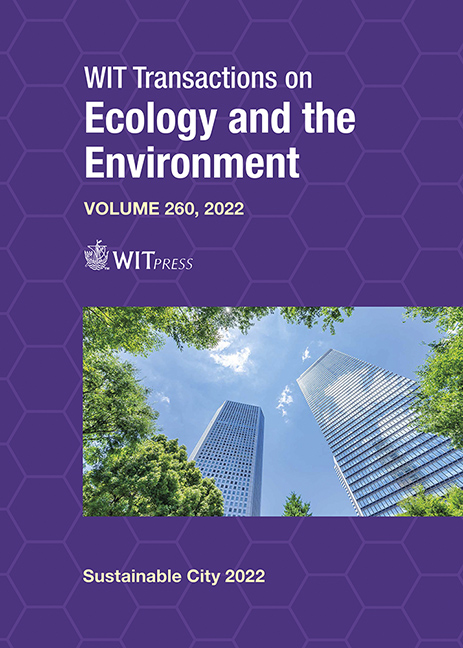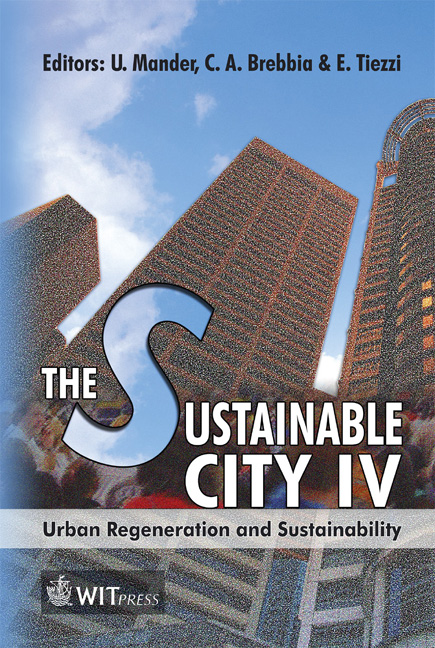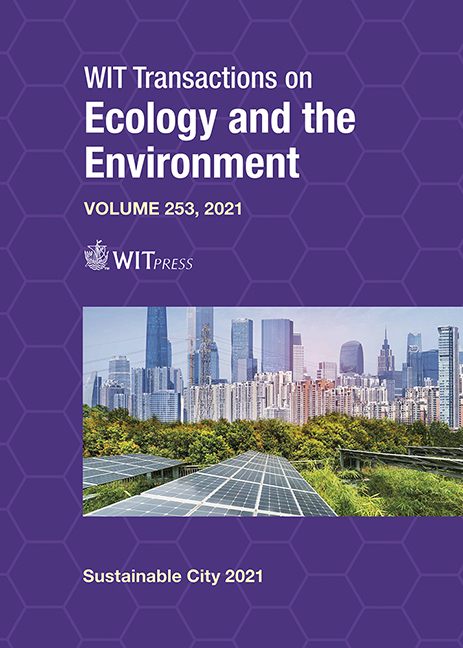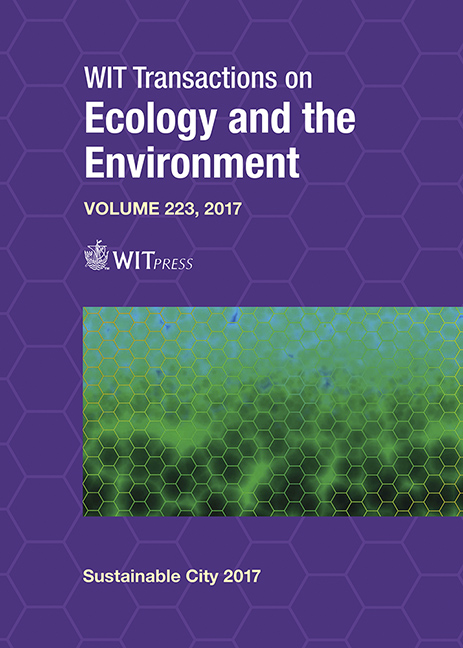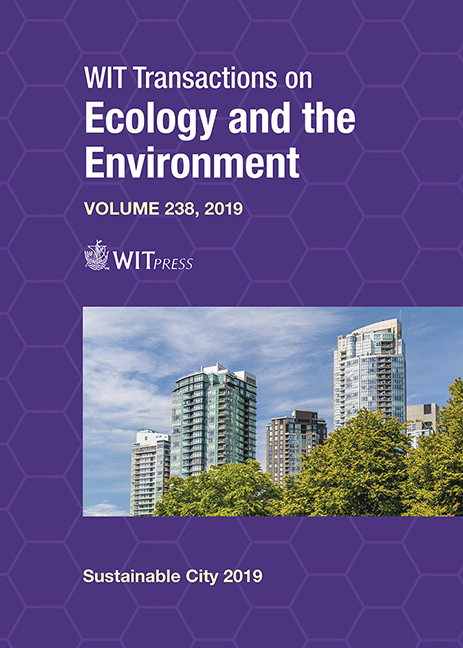The Sustainable City XVI
Edited By: S. Hernandez, University of A Coruña, Spain and Member of WIT Board of Directors and J.L. Miralles i Garcia, Politechnic University of Valencia, Spain
Price
£250.00 (free shipping)
ISBN
978-1-78466-481-7
eISBN
978-1-78466-482-4
Pages
556
Transaction Series
WIT Transactions on Ecology and the Environment
Transaction Volume
260
Published
2022
Format
Hardback
Various aspects of the urban environment, with an emphasis on solutions leading towards sustainability, are the focus of the research contained in this volume. The included papers were presented at the 15th International Conference on Urban Regeneration and Sustainability.
The task of researchers is to improve the capacity to manage human activities, pursuing welfare and prosperity in the urban environment. Any investigation or planning in a city ought to consider the relationships between the parts and their connections with the living world. The dynamics of its networks (flows of energy-matter, people, goods, information and other resources) are fundamental for an understanding of the evolving nature of today’s cities.
Coastal areas and coastal cities are an important area covered by this book, as they have some specific features. Their strategic location facilitates transportation and the development of related activities, but this requires the existence of large ports, with the corresponding increase in maritime and road traffic and all of the inherent negative effects, and can be directly affected by the rise in sea level. This requires the development of well-planned and managed urban environments, not only for reasons of efficiency and economics but also to avoid inflicting environmental degradation that causes the deterioration of natural resources, quality of life and human health.
Urban agriculture and food sovereignty are crucial issues that are included due to their impact on city life. The scale of modern food production has created and exacerbated many vulnerabilities and the feeding of cities is now infinitely more complex. In recent years, there has been a rapid expansion in initiatives and projects exploring innovative methods and processes for sustainable food production. These projects are mainly focused on providing alternative models that shift the power back from the global food system to communities and farmers improving social cohesion, health and wellbeing. These initiatives have demonstrated that urban agriculture has the potential to transform our living environment towards ecologically sustainable and healthy cities.

